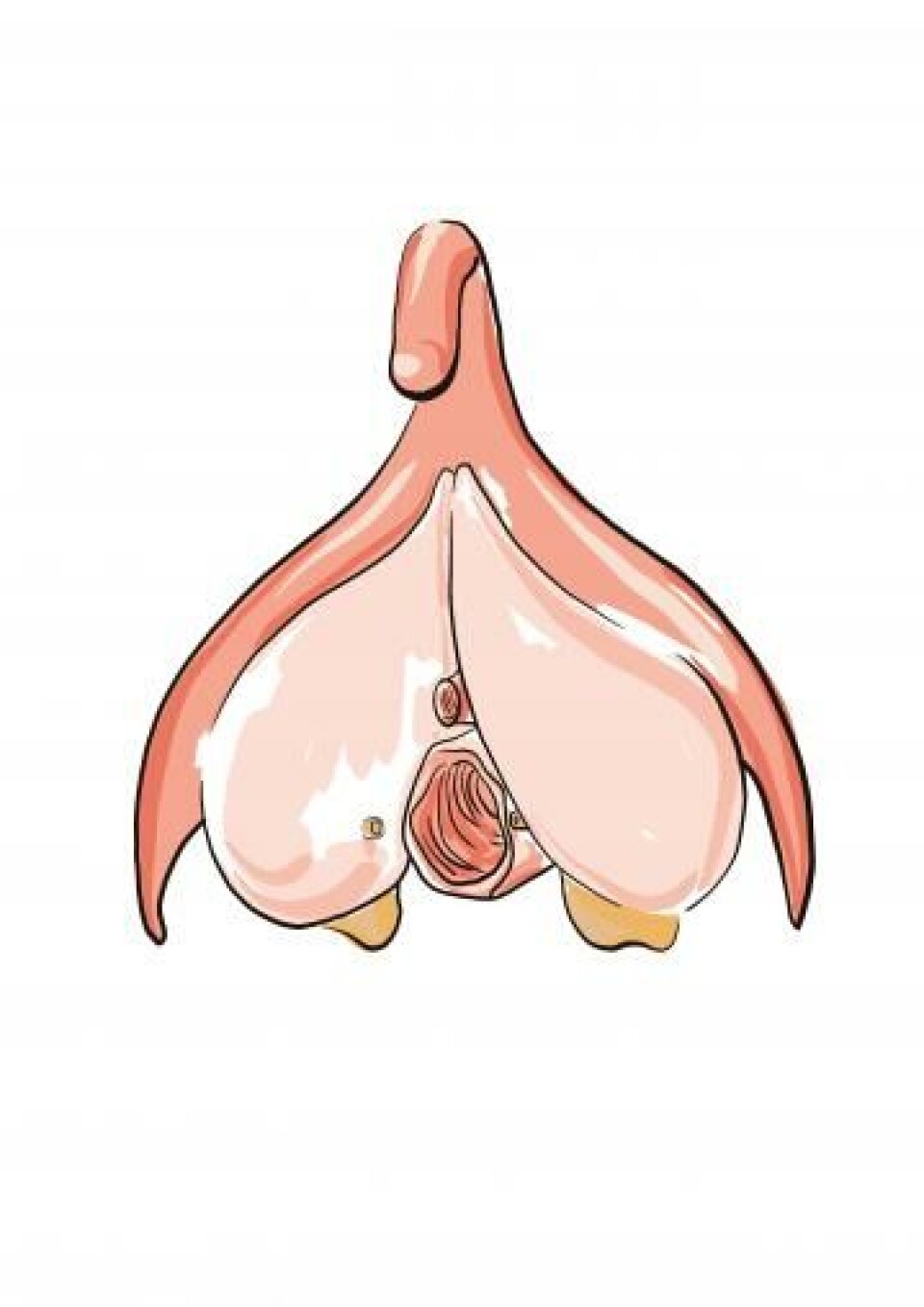analysis> 'It is especially important to take your time'
Lack of knowledge causes an orgasm gap

Inequality between men and women manifests itself in different aspects of society, and the orgasm gap is no exception. The female orgasm requires practice, patience and self-knowledge.
Originally written in Dutch for Veto by Elien D'hoore and Manon Cools
Translated by Alon Nudler and Manon Cools
Originally published on March 28, 2022
Do you regularly orgasm? That question might seem trivial to most men, whereas the answer is often far more complicated for women. To better understand this gap, Veto conducted a survey among female-presenting and assigned female at birth (AFAB) students, aged 18 to 25 in Leuven. The 288 collected responses revealed a few noteworthy trends.
It's not too late to learn to masturbate
90% of respondents said they pleasure themselves by using their hands or toys. Masturbation, however, is not guaranteed to lead to an orgasm. Only 70% of the respondents confirm that they come most of the time. That means that three out of ten AFABs do not regularly orgasm from masturbation.
Additionally, 10% of respondents stated they have never experienced an orgasm or are unsure about it. While ignorance might sound far fetched, it does not surprise clinical sexologist and co-founder of 'Seksuologen met Twee', Leila Lambrechts: 'Some people have unrealistic expectations of what an orgasm feels like.'
'When you orgasm, you are discharging tension built up over some time'
Leila Lambrechts, clinical sexologist and co-founder of ‘Seksuologen met Twee’
Lambrechts tells about one of her patients, who thought she was not able to orgasm because she could not squirt. 'An orgasm for men is visual and many women are looking for a similar confirmation.' It is possible for an orgasm to not live up to such ideal, which can be disheartening for some.
Then how can you be sure whether you have climaxed? According to Lambrechts, that is not a simple question as it varies amongs AFABs. She describes it as a tension-relieving feeling, after it has been building up for some time. 'That being said, it is important to know what it feels like for you and what happens to your body at that moment', she adds.
The golden touch
A second finding of our survey, which probably will not come as a surprise, is that orgasms are more often achieved at one's own hand. 25% of respondents indicate that they do not orgasm from stimulation from their partner's hands, or have never engaged in that way with a partner.

Oral sex has never led to an orgasm in the case of one third of the respondents. That number jumps when penetrative sex is the primary stimulant: two-thirds indicate they have never or rarely orgasmed in that way. Studies from countries around the world show a similar result; two-thirds do not climax without additional stimulation.
The gap in frequency of orgasms can be attributed to two reasons: the anatomical one, the specifics of one's body, and a lack of (self)knowledge. Those two also have the tendency to exacerbate each other’s effects.
The clitoris is more than just the glans
While rumors of some who can achieve an orgasm without physical stimulation exist, there is little scientific evidence for this. The average person with a vulva can only climax the clitoris is stimulated on the outside or inside.
‘I find it hard to understand why the clitoris is not in every schoolbook. It’s like not drawing a nose on a face’
Leila Lambrechts, clinical sexologist and co-founder of ‘Seksuologen met Twee’
The glans (the head) of the clitoris, which is located under the cap formed by the inner labia, is most visible. What many people still do not know is that the organ behind the glans has erectile tissues. This means that, like a penis, they swell when aroused. This stimulation is hard to come by, because you have to apply pressure at the right spot of the vaginal wall.
Lambrechts explains how the ignorance of the female anatomy plays a big role in the perpetuation of the problem. 'When men do not get an erection, we identify that as a problem. Whereas for women, if you skip foreplay and slide right in, it will not be pleasant. You just have not received enough stimulation.'
The sexologist is pleased that Dutch primary schools use a biology book that contains the clitoris, but she still wants more. 'I find it hard to understand why the clitoris is not in every schoolbook. It's like not drawing a nose on a face.' She believes many people who are sexually active today suffer from a lack of sex education.
How was it for you?
Like all things in life, communication is the key. The clitoral stimulation is often seen as the be-all and end-all of a woman's sexual pleasure, but that is not the case for everyone. 'The clitoral glans is very sensitive for some', says Lambrechts. 'It can happen that your partner will find the clitoris, but it won't feel comfortable.'
If a partner is not aware of the many complexities of the female body, this can lead to an unsatisfactory experience. For example, one respondent says: 'There is a taboo around not coming because it seems, as a woman, as if you are dissatisfied with the other person if you don't orgasm.' It is with those thoughts in mind that women start faking orgasms.
This leads to unhealthy pressure. 'Some women worry that it will not happen or that it will take too long. It distracts them and draws them out of their sexy mood, which effectively makes it impossible', explains Lambrechts. Wannes Magits, policy advisor at the sexual health center Sensoa, agrees. 'Such thoughts can be distracting during sex and masturbation. When you orgasm, you should be focused on yourself.'
Letting your mind wander and overthinking may also explain why the majority of respondents (44.3%) say they would like to climax faster or easier. Different positions are usually not the answer. 'It is mainly about bringing yourself back to the exciting mindset', says Lambrechts.
It is important to indicate what you like: 'If you like it when someone touches your breasts, you should sit on top', the sexologist continues, 'and if you are insecure about your body, turn off the light or indicate that you do not want to be caressed there. It is often small things that make it better. Above all, it is especially important to take you time.'





